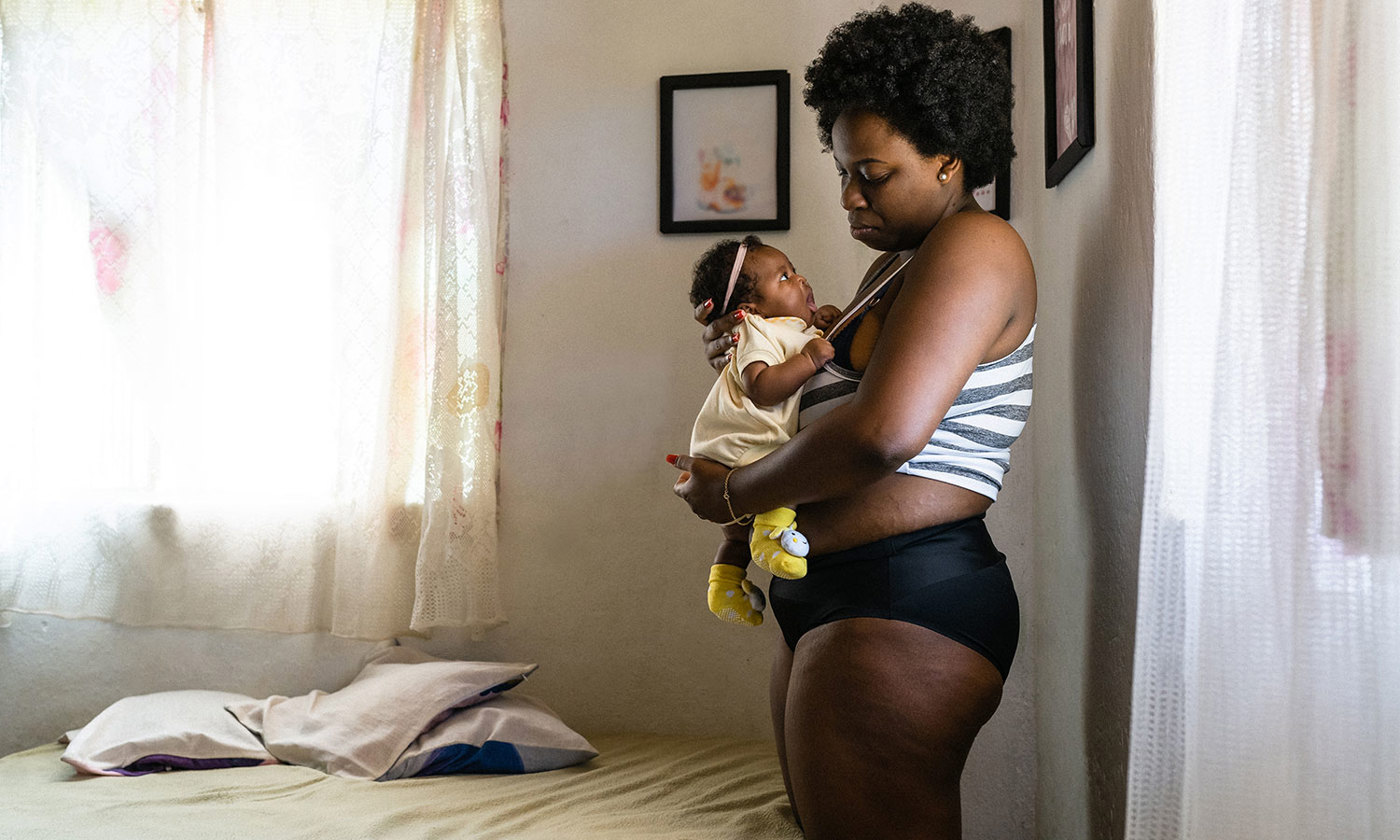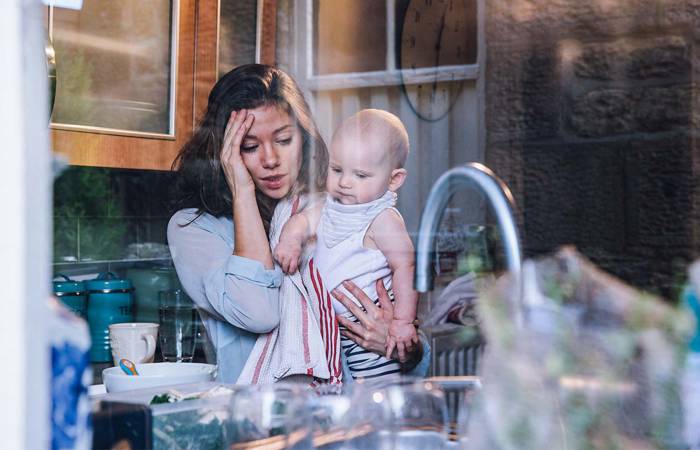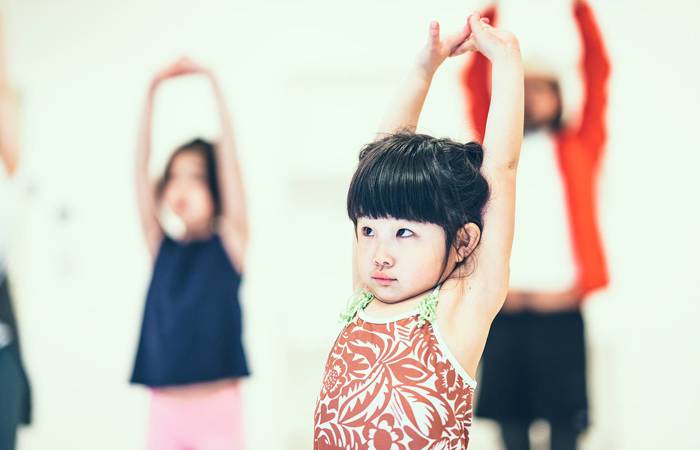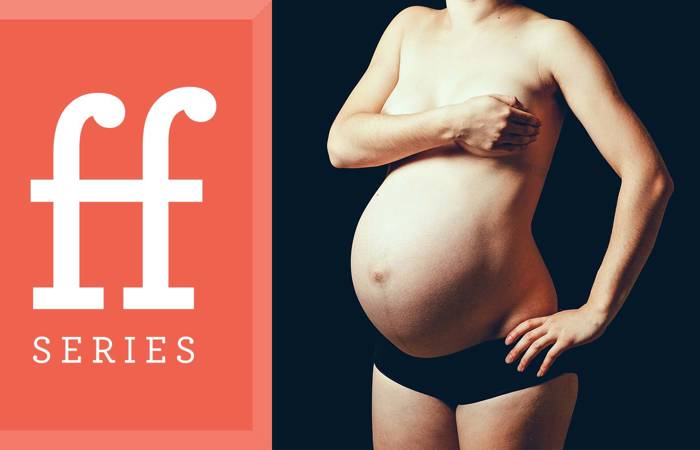Like what you see?
Sign up to receive more free parenting advice.
Thank you for subscribing to our newsletter!
Lifestyle

Credit: iStock.com/it:Igor Alecsander
An unexpected benefit of pregnancy can be a reprieve from expectations on the shape and size of women’s bodies but all too soon though, the conversation can turn to whether you’re ‘taking the eating-for-two a bit too far’ or how long it will take to get your ‘bikini body’ back.
Once you’ve managed the mental and physical hurdle of giving birth, many of us feel a rush to get back the body we once had, while simultaneously being grateful for everything it has and is doing for our newborn.
It’s no wonder mothers are experiencing confusion when it comes to their shape and size, but let’s investigate where this pressure to ‘bounce back’ is coming from, how mothers accept their post birth shape and how do we make sure future generations don’t face the same problem?
Puberty 2.0
Dr Zali Yager is the Executive Director for the Body Confident Collective, a not-for-profit health promotion charity and body image research ‘translation’ organisation powering the Body Confident Mums Project.
She says one of the biggest hurdles to body acceptance is the lack of education pregnant women receive on what to expect of their body during pregnancy and breast feeding.
“The extent of the weight, hormonal, physiological, psychological and identity changes during pregnancy and post birth are just the same as puberty, just at a much faster rate,” Dr Yager explains.
“The problem is there is no real understanding of those changes, either in society or for individual women going through that period.”
She adds that within perinatal care the focus is mostly on gestational weight and gestational weight retention.
“That should be the last thing we are thinking about,” she says.
“We should be talking about some of the changes that happen and why they happen.
“For example, that a woman’s body will change after birth, not just their weight, but the shape of their hips due to the ‘relaxing’ hormone, or metabolisms will change as your body knows you’re of child-bearing age and will prioritise storing fat on the hips, thighs and stomach area in order to protect the uterus.
“There are a lot of changes happening with a woman’s body during that period and focusing on the natural process that our body is going through and how that might affect our shape is far more beneficial than simply concentrating on weight.”
Every time a mother says something negative about her own body, children learn that is how women should behave about their own bodies.Dr Zali Yager
Stay up to date with the latest news and articles from First Five Years
Thank you for subscribing to our newsletter!
Where is the pressure coming from?
Whenever the subject of body image is mentioned, fingers are immediately pointed at photoshopped celebrities on magazine covers and filtered social media images.
Is social media the culprit?
Dr Yager says that it isn’t necessarily where the pressure is coming from now.
“There isn’t data on this, but from my experience, in the past decade there has been a big shift away from social media pressuring women to have unrealistic expectations of their body after birth,” she explains.
“What we see now, are more celebrities, and mums, posting their real after birth bodies and the process of their body’s changes from those first initial weeks to months after.
“Having that real visual imagery actually helps other women set their expectations of what is going to happen, or that changes to getting their body to what they want will take time.”
So, where is the pressure coming from?
Probably from women themselves Dr Yagers says.
“What we hear in the research is that we have this inbuilt pressure that we put on ourselves,” Dr Yager says.
“That critical voice in our head that says we are a failure as a mother because we don’t look like we are holding it all together.”
When we dislike our bodies
In 2019, researchers found that over a quarter of all women (not just mothers) were somewhat to extremely dissatisfied with their body, while over half of the respondents had moderate or significant shape and weight concerns.
The research also identified that negative body image significantly corelated with poorer wellness behaviours, negative emotions, quality of life and functional impairment.
“In maternal health care, there are two main concerns. First, perinatal mental health and second gestational weight gain,” explains Dr Yager.
“If we help mothers feel better about their bodies, we have found that actually promotes physical activity and increases dietary quality.
“Those physical behaviours increase a mother’s mental health by reducing anxiety and depression.
“If women feel good about their bodies, then they will engage in healthy physical behaviours which can positively impact their mental health.
“So, we get a reduction in the two original maternal health care concerns by addressing a mother’s body concerns.”
Dr Yager also emphasises that it is not necessarily about body positivity, but rather body acceptance.
“It’s about that appreciation of the functionality of your body,” she adds.
The good news is mothers are halfway there.
In 2020, Dr Yager and her colleagues found that women with no children had the worst body image as they still valued their body based on their appearance while women with children valued their body in relation to what their body could do, for example safely carry their children during pregnancy.
Poor body image can also trickle down to the next generation.
Dr Yager explains that role modelling from parents and the family environment are the main influences on body image in children until they turn nine. After that a child’s peers and the media start to play a role.
“Every time a mother says something negative about her own body, children learn that is how women should behave about their own bodies,” cautions Dr Yager.
“It is really quite damaging in laying down those early pathways for the way we think about food, physical activity and our bodies but also the way that we value ourselves.”
Dr Yager’s four strategies to improve body acceptance:
1. Fix your social media feed
There is quite a lot of evidence that looking at images of thin women doesn’t motivate you but it increases depression and worsens your body image. Follow diverse accounts, in particular, women who are your shape and size.
2. Build self-compassion
Recognise when you are being mean to yourself and replace those thoughts with what a kind friend would say to you.
3. Value your body functionality
Think about what your body has done or could do for you and why that is important to you.
4. Get moving
Physical activity is one of the hardest things to do when you are already feeling tired and not feeling good about yourself, but it is also known to improve body image. Any movement is good movement, as long as you are enjoying it.
Body Confident Mums has additional resources on improving body image and acceptance, and Dr Yager has a book coming out later this year, called Embrace Kids.






